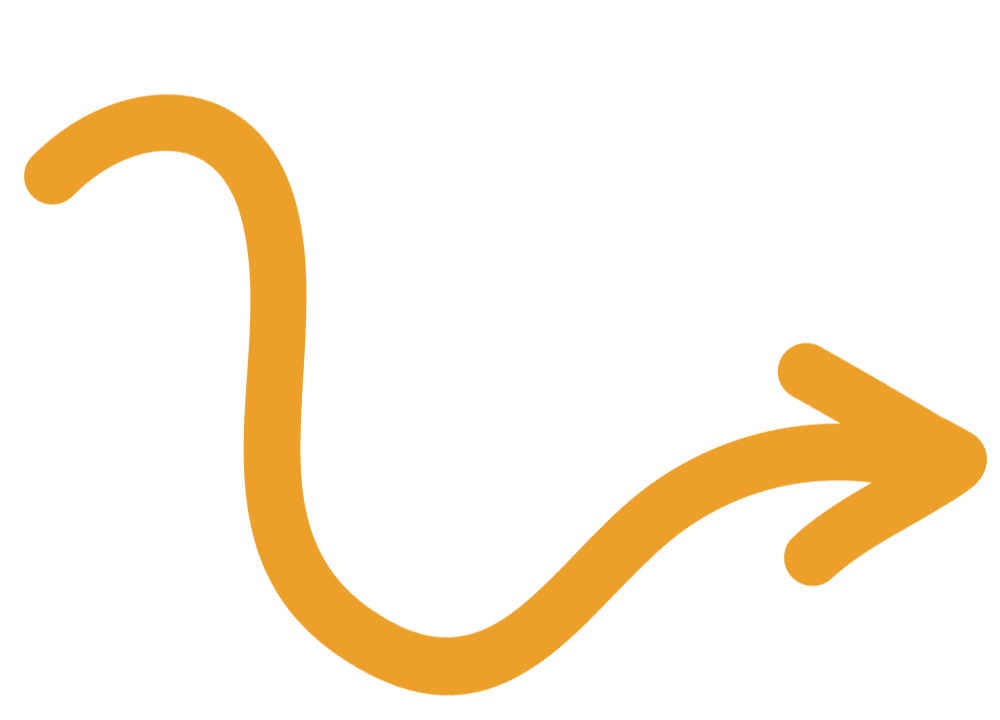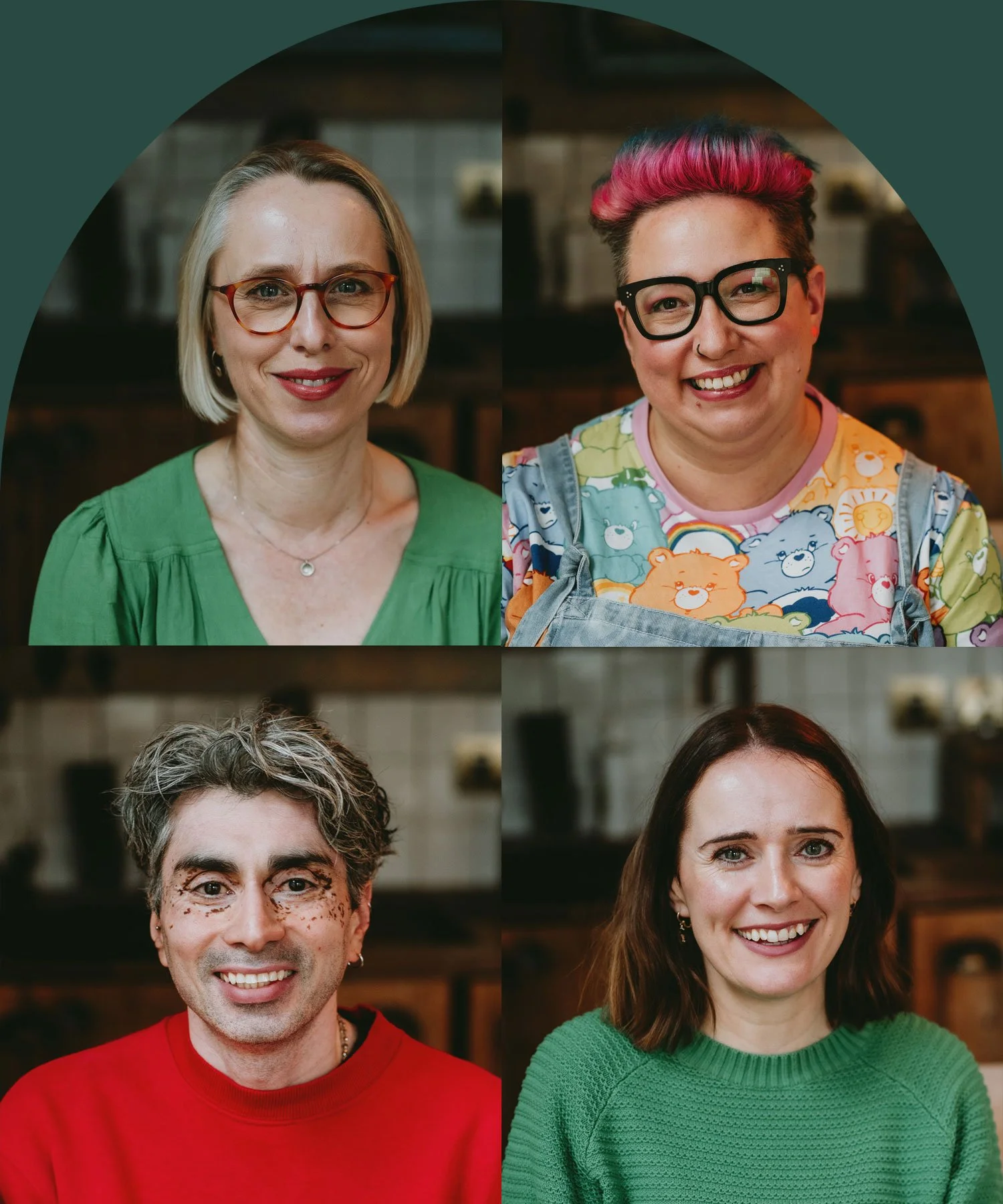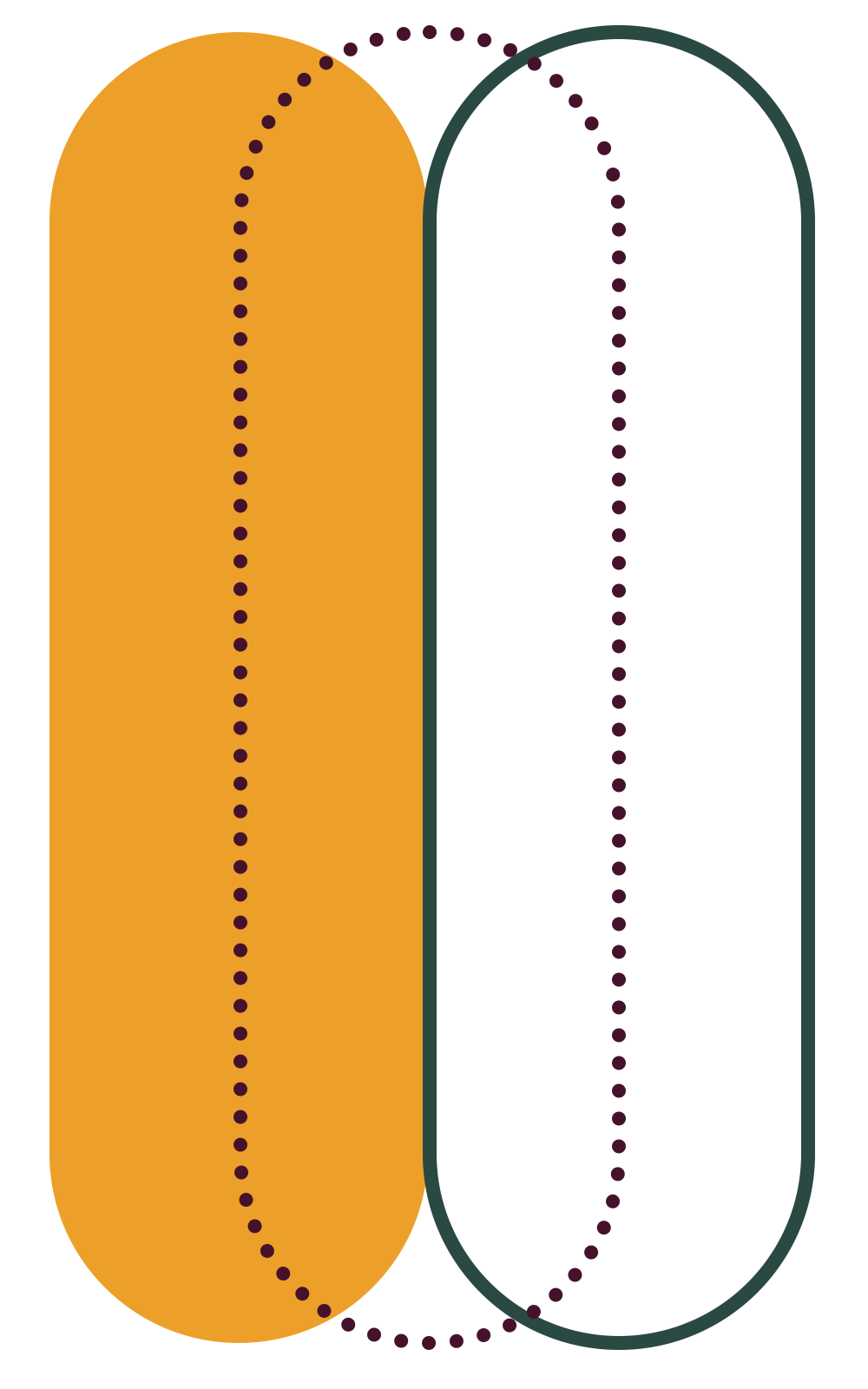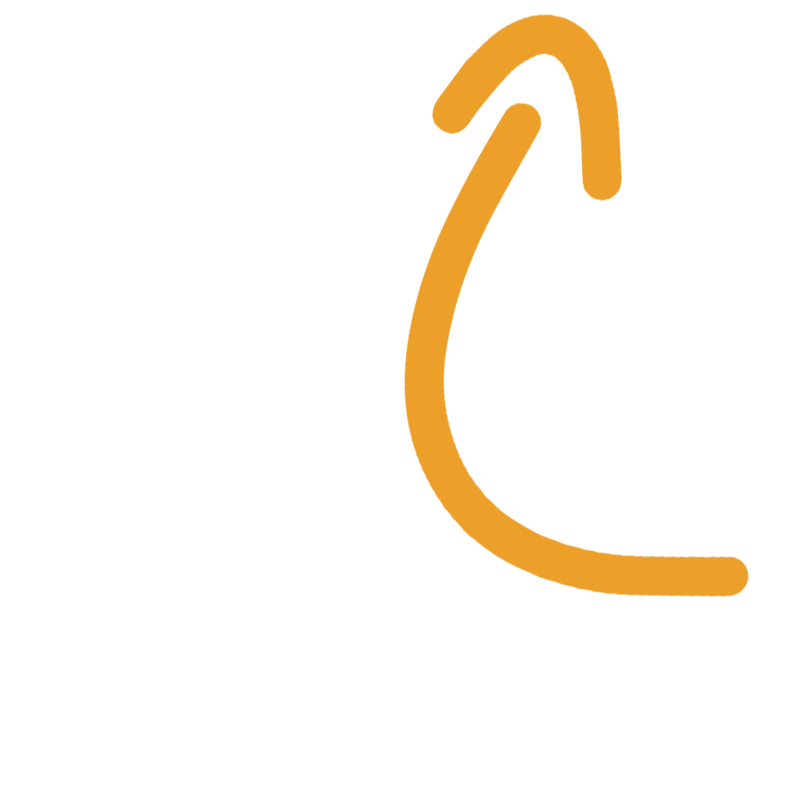
ADHD Coaching Qualification: Become an Advanced ADHD Coach
A comprehensive ICF-accredited ADHD coaching diploma for new and existing coaches.
What if becoming a specialist in ADHD coaching changed everything?
Coach with depth and integrity
Go beyond surface-level tools. Learn to coach relationally, reflectively, and ethically - supporting clients in ways that truly hold them.
Build confidence you can trust
Develop your unique coaching voice with mentor coaching, ADHD clients, and supportive supervision to help you grow.
Gain credibility and accreditation
Earn a globally recognised ICF accredited qualification that signals professionalism, depth, and specialist training in ADHD coaching.
-
ADHD coaching is a specialised and rapidly growing field dedicated to supporting individuals with Attention Deficit Hyperactivity Disorder (ADHD) in reaching their potential and thriving in all areas of life. An ADHD coach is uniquely trained to help clients develop self-awareness, identify their strengths and challenges, and create practical strategies for overcoming obstacles. Through a combination of active listening, empathy, and evidence-based techniques, ADHD coaches provide a supportive environment where clients can build confidence, improve emotional regulation, and develop essential life skills.
The role of an ADHD coach goes far beyond offering advice or quick fixes. Instead, coaching is a collaborative process that empowers clients to take ownership of their growth, develop new habits, and sustain meaningful change. Whether it’s mastering time management, enhancing organization, or navigating emotional ups and downs, ADHD coaches are equipped to support clients with compassion and expertise.
Training to become an ADHD coach involves a rigorous program that blends theory with hands-on practice. The International Coaching Federation (ICF) sets the gold standard for coaching training, ensuring that ADHD coach training programs meet high ethical and professional benchmarks. Through our ICF-accredited training, coaches learn to support clients holistically, integrating self-awareness, practical skills, and emotional intelligence into every session. With the right training and support, ADHD coaches are empowered to make a lasting difference in the lives of their clients, helping them unlock their potential and achieve success on their own terms.
Have you been looking for a comprehensive course that…
…sets you apart as a true specialist?
Become the coach clients are searching for. This diploma sets a new standard for ADHD coaching with specialist training that’s deep, rigorous, and globally recognised.
…is led by people who get it?
Our faculty are neurodivergent coaches and therapists who bring lived experience, professional insight, and coaching expertise into every room. We train like we coach: with care.
…includes trauma-awareness as core, not extra?
Coaching is relational. Learn how to build trust, stay present with emotion, and hold space that honours shame, emotional regulation, and the full human experience.
…prepares you to coach at depth?
Develop the reflective capacity, presence, and attunement to work with complexity, supporting ADHDers through stuckness, insight, and meaningful action.
…supports you in becoming an inclusive practitioner?
Understand how race, gender, class, sexuality, disability and other identities shape ADHD experiences. Our programme invites you to coach the whole person, not just their executive function.
…gives you everything in one place?
No scrambling for extra hours. Get your mentor coaching, supervision, client practice, feedback, and assessment all within one integrated training journey.
Train to coach with depth.
ADHD coaching changes lives - starting with yours. This programme is designed to develop advanced coaching skills for working with ADHD and neurodiversity. This programme blends expert-led training, real-world practice, and a supportive community to help you become the coach you wish you had.
Course Fees - From £10,795*
Invest in comprehensive training with flexible payment options to support your journey.
Flexible Start Dates - Next cohort begins March 2026
Join a new cohort and begin your training when it suits you.
Live Online Training - With reflective practice
Experience live sessions, peer practice, supervision, and tailored mentor coaching.
Completion Time - 12-18 Months
Become a reflective ADHD coaching practitioner at a pace that works for your life and learning style.
Small Cohorts - Max 16 participants
Learn in a connected group of curious, committed peers with specialist support.
ICF Level 2 - 170.5 total training hours
Meets the highest international standards for professional coaching education.
*Taxes (such as VAT or GST) may apply depending on your country of residence. Any applicable taxes will be calculated and displayed at checkout. All prices are subject to change.
The only ADHD coach training that…
Leads with intersectionality
We help you explore your own privilege and marginalisation so you can hold safer space for those with different lived experiences.
Takes a therapeutic, process-led approach
Coaching isn’t surface work. Our training invites deep reflection, because you can only support a client as far as you’ve met yourself.
Delivers training in person, not just online
Our in-person modules accelerate confidence through live practice, feedback and connection. No other ADHD coach training offers this.
Works with strengths at a deeper emotional level
Strengths aren’t a checklist. They become a way of living. Until they’re embodied, they stay as good ideas, not transformation.
Integrates live feedback after every session
We don’t just welcome feedback. We use it. You’ll see your input shape how we teach and how we model self-advocacy.
We’re not here to replicate existing ADHD coaching models. We’re here to build something better. A training that transforms you, not just qualifies you.
Diploma in ADHD-Specialist Coaching
Choose the format that fits your life. Complete the full training online, or complete with an in-person intensive for Module 3 & 4. Both pathways include expert support, live feedback, and a comprehensive journey towards advanced ADHD coaching.
-

Designed with Neurodivergent brains in mind
Access private podcasts, short videos, visual guides, and concise learning materials. Our ADHD-friendly design supports focus, flexibility, and real-world application.
-

Practice-rich and professionally scaffolded
Includes 10 hours of ICF-aligned mentor coaching, observed sessions, and peer triads. You’ll grow through real coaching practice, structured feedback, and guided reflection.
-

Prioritises sustainability & your wellbeing
Supervision is built into the programme to help you stay resourced, supported, and reflective. You’ll have space to explore what’s coming up in your coaching, look after your wellbeing, and develop a practice that feels grounded and sustainable.
-
ADHD-Specialist coaching builds on an ADHD-informed foundation. It prepares you to coach at depth, with the confidence and sensitivity to hold more complex client presentations such as shame, masking, identity, and nervous system overwhelm. This does not mean working with trauma, but rather being able to coach in ways that are trauma-informed, attuned, and safe. Specialist coaches are trained to adapt their presence, attune relationally, and coach beyond surface tools. This is advanced coaching for those ready to meet ADHDers in all their complexity.
Not quite ready for the full Diploma? Start with our Certificate in ADHD-Informed Coaching - a foundational, ICF-accredited pathway to becoming a certified ADHD coach.
Hear Rajeef’s Story…
Rajeef came into training with a head full of theory, but it wasn’t until this training that it landed in his body.
“ADHD coach training forced me to learn something, apply it immediately, and get real-time feedback. That has been transformational. Models I used to understand only in theory, now live in me. I don’t just know them. I feel them.”
Rajeef, Senior UX Engineer at Google
What you can expect
This advanced diploma helps you coach with greater depth, presence, and ethical clarity. Rooted in the ICF PCC markers and PAAC Essentials, it equips you to navigate complexity, work relationally, and support clients to thrive with ADHD. You’ll build confidence in your ability to coach at depth, integrate theory with lived experience, and hold space with skill and nuance. Prefer learning in person? Modules 3 and 4 can also be taken as immersive, in-person intensives offered in select global locations.
We’re in this
together
Becoming an ADHD coach with Gold Mind Academy is so much more than just joining a training programme. You’ll be part of a connected, values-driven community of peers, coaches and mentors who really get it. This is a place to grow, belong, and coach together.
Learn from Diverse, Expert Faculty
Experience different faculty members across modules - each bringing unique perspectives, coaching styles, and lived experience to keep your learning fresh, dynamic, and deeply enriching.
A Community That Lasts
You’ll join a supportive online learning community that stays active long after your training - offering connection, collaboration, and ongoing professional growth.
Grow Into Your Coaching Identity
You won’t be taught a rigid method. Instead, you’ll be supported to coach with confidence, clarity, and deep connection to yourself.
Who this programme is for (and not for…)
Our alumni range from those leaving full-time work, to coaches, leaders, parents, therapists, and curious humans from all walks of life and spread across the globe.
Who it's for
Values working at depth
This diploma is for anyone ready to build the self-awareness, relational capacity, and trauma-informed approach needed to work with complex client presentations in a safe, inclusive, and ethical way.
Looking for comprehensive training
Move beyond foundational training and into advanced ADHD-specialist coaching, grounded in strengths-based ICF & PAAC aligned practice.
Seeking confidence in coaching
Receive live feedback and hone your skills through mentor coaching in an experiential learning space. Supervision supports your wellbeing, helping you process what comes up in practice and develop in a way that’s grounded, reflective, and protects against burnout.
Who it's not for
Avoiding emotional depth
If you prefer to stay in the practical or theoretical, this course may feel confronting. Working at depth means engaging with emotion, identity, and complexity in yourself and others.
Wanting a quick qualification
This isn’t a tick-box or fast-track route. It’s a comprehensive, professional training designed to build depth, rigour, and confidence over time, not just knowledge.
Preferring to work in isolation
This training invites collaboration, curiosity, and brave reflection. If you’re not open to being gently challenged, receiving feedback, or learning alongside others, it might not be the right fit just yet.
Still not sure?
What if you’re already a coach?
You won’t be starting over. This Diploma builds on your existing skills and equips you to coach with ADHD, not around it. Learn to hold complexity, meet difference with care, and integrate neurodivergent-led, trauma-informed practice without losing sight of professional standards.
Apply ADHD-specialist tools to deepen your existing coaching approach
Work with emotional depth, stuckness, identity, and nervous system overwhelm
Integrate trauma-informed, inclusive, and neurodivergent-led coaching practices
Stretch your coaching with live feedback and reflective supervision
Align with both ICF and PAAC professional standards
Hear Sylvester's experience of the course as a trained EMCC coach.
Success Stories
-

Susannah Ward, ADHD Life Coach
“Life-changing perspective shift”
This course helped me shift how I see ADHD—moving from struggle to strength, with real empowerment.
-

Sam Patterson, Executive Coach
“So much more than training”
A generous, reflective space that deepened my practice and brought more ease to my life and work.
-

Fran Sexton, Patient Safety Implementation Project Lead
“From glimmers to clarity”
This course gave me deep self-understanding and the foundation to coach others with confidence and care.
-

Jen Price, Neurodiversity-Affirming Coach
“Clarity I couldn’t reach before”
The course gave me new tools and insight that individual therapy and courses hadn’t touched.
-

Jade Rogers, Neurodivergent Life Coach
“The best thing I’ve done”
I’ve found my voice, grown in self-advocacy, and built, a more compassionate relationship with myself.
-
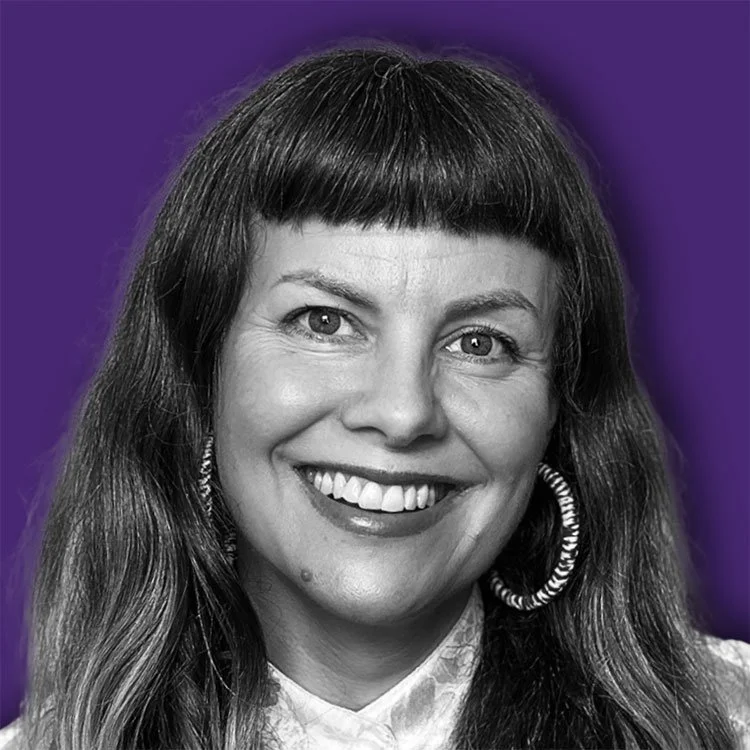
Dr Annemarie O’Dwyer, Neurodivergent Advocate and Trainer
“Supportive, spacious, and empowering”
I found tools that enhance how I think, not change it, and a deeper sense of self-trust.
-
The demand for skilled ADHD coaches is on the rise, opening up a wide range of career opportunities for those passionate about making a difference. As an ADHD coach, you can choose to work privately with clients, join a mental health or educational institution, or collaborate with organisations to provide coaching services to employees. Many ADHD coaches also launch their own coaching businesses, offering tailored support to individuals and groups seeking to navigate the challenges and strengths of ADHD.
Completing a comprehensive ADHD coaching course like this diploma provides the foundation needed to succeed in this rewarding field. Our program combine in-depth knowledge, practical training, and ongoing supervision, ensuring that coaches are well-prepared to support clients with diverse needs. Supervision and Coach Mentoring from experienced coaches are integral parts of the training journey, helping new coaches build confidence and refine their skills.
Upon successful completion of this accredited ADHD coach training program, individuals can become certified ADHD coaches, recognised for their expertise and professionalism. This ADHD coach training opens doors to a variety of roles, from working in mental health settings to supporting students in educational environments, or even partnering with businesses to enhance workplace wellbeing. The flexibility of ADHD coaching means you can shape your career to fit your interests and lifestyle, whether you prefer one-on-one sessions, group coaching, or organisational coaching.
Ultimately, a career as an ADHD coach is both challenging and deeply fulfilling. You’ll have the opportunity to empower clients, foster growth, and contribute to a more inclusive and supportive world for those with ADHD. With the right training, knowledge, and commitment, you can build a thriving coaching practice and make a meaningful impact every day.
Flexible Course Dates & Times
Unlike most ADHD coach training programmes, we offer four start dates a year and a modular structure so you can choose when and how you train.
Rolling Start Dates
Start your training in January, March, September or November. Flexibility to fit your life.
Multiple Time Options
Modules 1 and 2 are offered in both GMT AM and PM formats. Module 3 and 4 are offered GMT AMs. Choose the times that suit you best.
In-Person Intensive Option
Prefer in-person learning? Complete Module 3 in a 5-day immersive intensive and Module 4 is a 6-day training.
View module dates & times:
All times are listed in UK time (GMT or BST). If you’re outside the UK, use the time converter to check your local start time. Please note any mid-module clock changes.
| Module | Duration | Date/Time Option 1 | Date/Time Option 2 | Starting Dates |
|---|---|---|---|---|
| Module 1 | 8 weeks | Tuesday Morning 9:15am - 11:45am GMT* | Tuesday Evening 6:15pm - 8:45pm GMT* | Rolling start, every couple of months (Jan, Mar, Jun, Sept, Nov) See calendar for exact dates |
All times are listed in UK time (GMT or BST). If you’re outside the UK, use the time converter to check your local start time. Please note any mid-module clock changes.
| Module | Duration | Date/Time Option 1 | Date/Time Option 2 | Starting Dates |
|---|---|---|---|---|
| Module 2 | 8 weeks | Thursday Morning 9:15am - 11:45am GMT* | Monday Evening 6:15pm - 8:45pm GMT* | Rolling start, every couple of months (Jan, Mar, Jun, Sept, Nov) See calendar for exact dates |
All times are listed in UK time (GMT or BST). If you’re outside the UK, use the time converter to check your local start time. Please note any mid-module clock changes.
| Module | Duration | Date/Time Option 1 | Date/Time Option 2 | Starting Dates |
|---|---|---|---|---|
| Module 3 | 10 weeks | Tuesday Morning
9:15am - 11:45am GMT* | Friday Morning
9:15am - 11:45am GMT* | Rolling start, every couple of months (Jan, Mar, Jun, Sept, Nov) See calendar for exact dates |
| Module 3 (in-person) | 1-week intensive residential | 18th-23rd May 2025 Granada, Spain | 24th - 29th November Auckland, NZ | Spaces available for both residentials - see details |
All times are listed in UK time (GMT or BST). If you’re outside the UK, use the time converter to check your local start time. Please note any mid-module clock changes.
| Module | Duration | Main Sessions | Learning Arenas | Starting Dates |
|---|---|---|---|---|
| Module 4 | 14 weeks | Wednesday Morning
9:15am - 11:45am GMT* | Monday Morning 10am - 11am GMT* | Rolling start, every 4 months (Jan, Apr, Sept) See calendar for exact dates |
| Module 4 (in-person) | 1-week intensive residential | 4th-10th December 2025 Auckland, New Zealand | Spaces available for residential - see details | |
FAQ
-
Yes and no! Many coaches with prior experience appreciate the comprehensive course and enrol onto all 4 modules - but if this not appropriate for you right now, you could choose to enrol on our Certificate in ADHD-Informed Coaching (Modules 1, 2 & 3) to gain your ADHD coaching certificate and the come back at a later date to complete Module 4 and upgrade to the diploma as and when you feel ready.
-
No. Each module runs as a closed cohort. Once you enrol in a module, you’ll stay with that group for the full duration of that module to support connection, continuity, and psychological safety. You are able to be in a different cohort as you transition into the next module. E.g. You might choose an AM cohort for Module 1 but then choose a PM cohort for Module 2.
-
Not entirely. Our training is mostly live and interactive via Zoom.
You must meet the following minimum attendance requirements for each module:
Module 1: Must attend at least 6 out of 8 sessions (maximum 2 missed sessions).
Module 2: Must attend at least 6 out of 8 sessions (maximum 2 missed sessions).
Module 3: Must attend at least 8 out of 10 sessions (maximum 2 missed sessions).
Module 4: Must attend at least 10 out of 12 sessions (maximum 2 missed sessions).
All students MUST attend the first session of each module, this is crucial for contracting requirements.
If you miss a third session in a module, you’ll need to retake that session with another cohort. This costs £160 (+ any applicable sales tax) per session, and only one retake is allowed per module.
If you miss four or more sessions in total, you’ll need to retake the full module at your own expense to meet the course requirements.
Any missed sessions must be caught up by watching the missed session recordings. These recordings remain available to you for review via our online learning platform.
-
Yes. You can pay your tuition in monthly instalments spread across the duration of your training. The only condition is that all payments must be completed by the end of your final module. The maximum length is 18 months payments. For custom plans, email us at hello@goldmindacademy.com.
-
Module 1 and 2
You’ll need to listen to a 30-minute private podcast before each session.
Module 3
As well as the 30-minute weekly podcast, you’ll also take part in weekly triad coaching practice (1 hour per week), and attend three one-to-one mentor coaching sessions after the module ends. These sessions are scheduled at a time that works for you and your mentor. You’ll also prepare and submit a recorded coaching session for your final performance evaluation within two months of completing Module 3.
Module 4
The weekly 30-minute podcast and weekly triad coaching practice (1 hour per week) continues throughout Module 4. You will also be attending 3 x Group Supervision sessions and 3 × 1:1 Mentor Coaching sessions in addition to the main sessions. Within two months of completing Module 4, you will prepare and submit a recorded coaching session for your final performance evaluation.
-
Yes, you can switch to the in-person intensive for Module 3 or 4, subject to availability. This option includes an additional fee of £855 (+ any applicable sales tax) and must be requested in writing by emailing hello@goldmindacademy.com.
-
Yes, although most students won’t need to pay any extras, there are a few optional or situational costs to be aware of:
Upgrading to an in-person Module 3 or 4: £855 (+ any applicable sales tax) (unless you enrolled for in-person from the start)
Additional or missed 1:1 Mentor Coaching sessions: £160 (+ any applicable sales tax)
Final performance evaluation resubmissions: £160 (+ any applicable sales tax) (first resubmission carries no fee)
Retaking a third live session (only one retake is allowed): £160 (+ any applicable sales tax)
We’ll always let you know clearly if any of these apply, and do our best to help you avoid extra costs.
-
We completely get it - you’re not alone in feeling this way. Our assessment process is designed to support you, not stress you out. After Module 3, you’ll have three one-to-one mentor coaching sessions with an experienced ICF PCC or MCC coach. These sessions help you choose a recorded coaching session for your final performance evaluation that best represents your coaching aligned with the ICF ACC markers. For Module 4, you will be submitting a recording that is in alignment with ICF PCC markers and PAAC 5 Essentials.
Once submitted, your recording will be reviewed within one month of the submission deadline, and you’ll receive clear, detailed feedback. The vast majority of our students - 99% - pass first time. But in the unlikely event that your recording doesn’t yet meet the criteria, we’ll be specific about what needs strengthening and what to demonstrate in a resubmission.
There is no “fail” at Gold Mind - only feedback, support, and a shared commitment to helping you become the brilliant coach you’re here to be.
-
Yes and no! You don’t need coaching clients to take part in Module 3, you will be coaching your peers. We focus on developing a strong coaching mindset first, with plenty of opportunities to practise in a supported environment.
Between Module 3 and Module 4, participants are required to complete 12 x coaching sessions with two ADHD clients who are neither coaches nor Gold Mind Academy students.
Module 4 deepens the work and you will be applying the learning to external clients.
-
You must meet the following minimum attendance requirements for each module:
Module 1: Must attend at least 6 out of 8 sessions (maximum 2 missed sessions).
Module 2: Must attend at least 6 out of 8 sessions (maximum 2 missed sessions).
Module 3: Must attend at least 8 out of 10 sessions (maximum 2 missed sessions).
Module 4: Must attend at least 10 out of 12 main sessions (maximum 2 missed sessions).
All students MUST attend the first session of each module, this is crucial for contracting requirements.
If you miss a third session in a module, you’ll need to retake that session with another cohort. This costs £160 (+ any applicable sales tax) per session, and only one retake is allowed per module.
If you miss four or more sessions in total, you’ll need to retake the full module at your own expense to meet the course requirements.
Any missed sessions must be caught up by watching the missed session recordings. These recordings remain available to you for review via our online learning platform.
Didn’t find the answer?
Why not have a chat with one of our team:
Ready to Get Started?
Step 1: Talk to Us
Unsure about anything? Have an informal call with our co-founder or a student ambassador to get your questions answered before enrolling.
Step 2: Choose Your Modules
Select the module start times that suit you best. Just follow the order: Module 1, then 2, then 3, then 4.
Step 3: Book Your Place
When you’re ready, enrol online and pay upfront or set up a flexible payment plan.
ICF Level 2 Accredited
Our ADHD coach training programme is officially accredited at Level 2 by the International Coaching Federation (ICF), meeting their rigorous global standards for coach education and ethical practice.
-
170.5 hours of ADHD-informed coach training
Exceeds the ICF minimum of 125 hours, delivered through live, interactive learning.
10 hours of Mentor Coaching
7 hours in a group setting plus 3 hours of one-to-one mentor coaching with experienced, ICF-credentialed coaches.
Written feedback on your coaching
You’ll receive structured, strengths-based written feedback on your coaching performance during the programme.
Final coaching performance evaluation
Submit a recorded coaching session to be assessed against ICF PCC-level standards by our ICF trained assessors.
PCC pathway, simplified
As a Level 2 course, we remove the guesswork when you’re ready to apply for your PCC credential with ICF. After completing this course, the only two things you’ll need to earn your PCC are:
Complete 500 1:1 hours of coaching experience
Take the ICF Credentialing Exam
ICF Membership Access
Your enrolment gives you eligibility to join the ICF as a member - even before you graduate.
Compared to other coach training organisations such as ADHD Works, our program’s ICF Level 2 accreditation and comprehensive standards ensure a high level of credibility and global recognition in the field of ADHD coaching certification.
Still have questions?
Talk with our co-founder or student ambassadors
Training to become an ADHD coach is a big decision. We’re here to help you choose what’s right for you.






